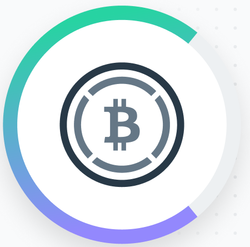
Janine Jackson interviewed Sohale Mortazavi about cryptocurrency for the February 4, 2022, episode of CounterSpin. This is a lightly edited transcript.
CounterSpin220204Mortazavi.mp3
New York Times (1/20/22)
Janine Jackson: New York City Mayor Eric Adams apparently lost money on his trumpeted decision to take his first paychecks in cryptocurrency. Adams had proudly announced an intention to make New York “the center of cryptocurrency and other financial innovations.” But media reporting remains respectful, calling Adams’ move an “overture…to the business community,” though it has “sparked skepticism.”
The tone is not, in other words, as though a powerful elected official were losing money at the dog track or betting on fantasy football. This, evidently, is not silliness, but some kind of savvy, whether lowly readers understand it or not. If you’re trying to understand cryptocurrency, and the “crypto” in the name sort of discourages that, and its relation to real goods and services, you probably have deeper questions.
Our next guest encourages such questions. Sohale Mortazavi is a Chicago-based writer whose recent piece, “Cryptocurrency Is a Giant Ponzi Scheme,” appeared at Jacobinmag.com. He joins us now by phone from Chicago. Welcome to CounterSpin, Sohale Mortazavi.
Sohale Mortazavi: Hi, Janine.
JJ: Well, I’m not ashamed, I will ask you straight up: The stock market is somewhat opaque, but we understand that it’s ultimately linked to things that get made and sold and used. What relationship does cryptocurrency bear to stuff–to cars, to ovens, to sweaters? What is it?
SM: It’s a great question. I would probably start by saying despite the name, these are not really currencies. Bitcoin was kind of started that way, at least in intent. But they really are just financial assets, and they get traded on financial markets kind of in the way stocks would.
But the big difference is that stocks are like legal ownership in a company, whereas cryptocurrencies are basically nothing. They’re basically just digital cells on a spreadsheet that people trade back and forth. They’re like digital Chuck E. Cheese tokens, almost, just in the sense that there’s nothing, there literally is nothing underneath any of them.
And there are a lot of cryptocurrencies now besides Bitcoin, and many of them market themselves in different industries. Honestly, it’s entirely speculative. All of that’s just hype, and it doesn’t really mean anything. They’re basically just speculative assets.
JJ: Well, I already understand more than I did before, no joke. But let me just ask you, what accounts for the imagery of cryptocurrency as being “pro–little guy” or even revolutionary?
SM: I think that it’s rooted in libertarian ideology to a certain degree. The person who invented the Bitcoin network did so after the 2008 crash, and the white paper for Bitcoin actually says it’s in response to the 2008 crash. And a lot of libertarians, frankly, have glommed onto this. And they sell it, as you said, as being good for the little guy.
But it misses the mark, because the issue with the 2008 crash was that the banking system was under-regulated. And this is kind of exactly the opposite. These are people who want to privatize financial markets entirely. Because cryptocurrencies, I mean, the one thing they do well is that they are decentralized. They are decentralized networks. There’s no central managing authority, at least the Bitcoin blockchain isn’t, right? And, yeah, it’s just like they’re privatized money, privatized financial markets. And to me, that’s the opposite of what we want, to avoid another major crash.
JJ: Well, then, what is the role of banks here, or even more importantly, maybe, what’s the role of federal regulators? Are they just kind of bystanders here?
SM: Yeah, they’ve been pretty asleep at the wheel on this whole thing. I mean, we have a pretty non-functioning political system in general. Getting any basic budgetary bill passed in Congress is nearly impossible. So getting actual regulations here has been really difficult. I know in New York state there have been some moves to regulate cryptocurrencies, and in particular stablecoins, which we should talk about in a moment.
JJ: Yeah.
SM: But yeah, I mean, the DOJ’s done investigations, the FTC. But everything is just always a little too little, too late. And we haven’t really gotten a good bill out of Congress at all so far.
JJ: What is stablecoin, and what role does that play?

Jacobin (1/22/22)
SM: Right, so this is what my piece in Jacobin was mostly about. I feel like most people get that crypto is this shady thing. It seems like gambling. It seems kind of like a con, and probably a bad investment. And it really is all those things. But my piece is actually homing in, as the DoJ and the FTC did, on stablecoin, and the Biden administration as well, I should say.
Basically, there are two main kinds of cryptocurrencies that are actually in use. And I will get yelled at for saying this by certain people; “there’s all these different kinds.” But really, there are speculative assets, like Bitcoin, people are trading on these markets. And then there’s also something called a stablecoin, which instead of being an asset that’s traded at different prices, is pegged, usually, to the price of the dollar. And so the one that people know the most about is Tether, which is issued by a Hong Kong-based company that runs a Hong Kong-based cryptocurrency exchange, Bitfinex.
JJ: Mm-hm.
SM: So I know this is a lot of information I’m dumping on you.
JJ: It’s OK. Yup.
SM: But these coins are pegged to the dollar, and they’re basically treated as dollars on exchanges. Because a lot of these exchanges are overseas, real banks don’t want to do business with them, and they don’t have access to dollars, basically, to facilitate exchanges on their exchange. So these stablecoins provide liquidity on bank exchanges.
But the thing about them is there’s nothing stopping them from printing as many as they want, which is basically what’s happening. You have these private companies issuing fake dollars on the blockchain, and then sending them out to their own exchanges, and doing basically God knows what with them. And there’s nothing stopping them from using these fake dollars to buy up Bitcoin assets.

Sohale Mortazavi: “Investors are buying thinking that prices are being driven by speculation, when they’re actually really being driven by market manipulation.” (image: Scam Economy, 2/3/22)
And, frankly, that’s basically what they’re doing. Researchers have looked into this. There is a class action lawsuit right now. Also, this is all on the blockchain. It’s all public. We can see what’s happening, more or less. And so what my piece posits is that the entire cryptocurrency market is basically a Ponzi scheme, in which these companies are printing fake money to buy up assets and drive up the prices.
I’m getting a lot of pushback on this, because people will say, well, technically, a Ponzi scheme is a specific thing. They’re usually investment funds that lure in investors, and pay out new investors, with funds from older investors. And the thing about crypto is that everyone kind of understands that that’s the goal of the game. So that’s not really fraudulent. They know it’s a purely speculative asset. The fraud comes in because investors are buying thinking that prices are being driven by speculation, when they’re actually really being driven by market manipulation.
JJ: I think that’s really interesting, because there’s kind of a double-level thing going on, at least with the narrative around it, where it’s like, yeah, this is kind of sketch, but if you get on the rollercoaster at the right time and get off it on the right time, the money you’ll make will be real money, even if we realize that it’s ironically untethered from real goods and services as people generally explain them. But what you’re saying is, this isn’t even tulips. This is something structurally worse.
SM: Right. Yeah. The thing is, people make money on Ponzi schemes, too, a lot of people. People who invested with Madoff did it because they made a lot of money doing so, until it fell apart.
JJ: Yeah. Well, what do you see as a way going forward? It’s clear, yes, some folks are making money, absolutely. A lot of folks are also being duped, and then even more folks are being confused, not to put too fine a point on it. But what do you see as a kind of harm-mitigating way going forward?
SM: I think the only way going forward is just to ban them entirely. And that’s what other countries are starting to do. China’s banned crypto entirely. India’s about to. Russia’s about to. And they’ve all talked about issuing their own state cryptocurrencies. But these aren’t going to be the same all-a-marketing-gimmick, actually private crypto that are being banned in all these other countries.
And I see it as really the only way, because these are private companies issuing these stablecoins. There is no way we can stop anyone from some other country, outside of our own jurisdiction, from opening an exchange, printing their own stablecoins and continuing their Ponzi. Because Tether is not the only company doing this, even though that’s the one that we’ve talked about. There are multiple ones.
So, yeah, I think a full ban is the only way to deal with it. Because there are companies like Coinbase that are banked exchanges. There’s Gemini, Coinbase, a few other ones, mostly based in the US and South Korea. And these actually are regulated crypto exchanges, that do have banking relationships. And these are functional as a cash off-ramp for people that are actually exchanging Bitcoin or Ethereum or whatever for actual cash. And if we close these down, the whole thing will just die overnight. That’s really the only way I see out of this.
JJ: We’ve been speaking with Sohale Mortazavi. He’s a Chicago-based writer, and you can find his recent piece, “Cryptocurrency Is a Giant Ponzi Scheme,” at Jacobinmag.com. Sohale Mortazavi, thank you so much for joining us this week on CounterSpin.
SM: Thank you so much.









































































Be the first to comment